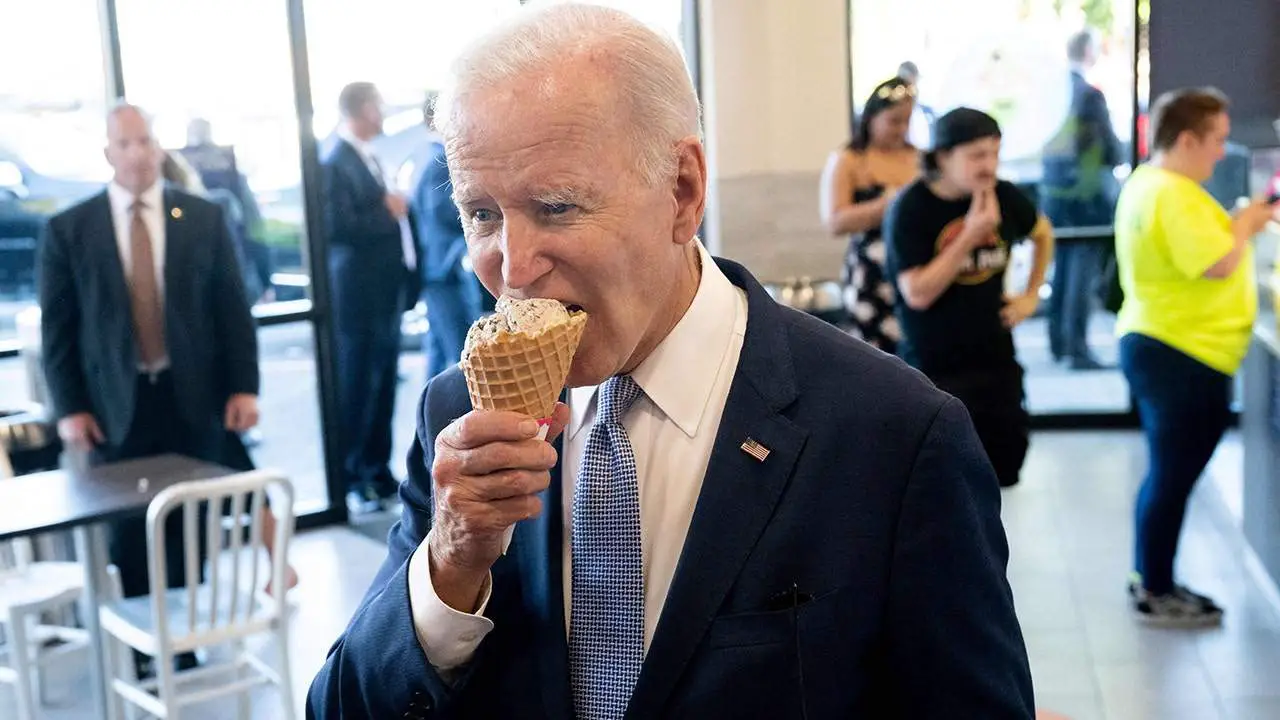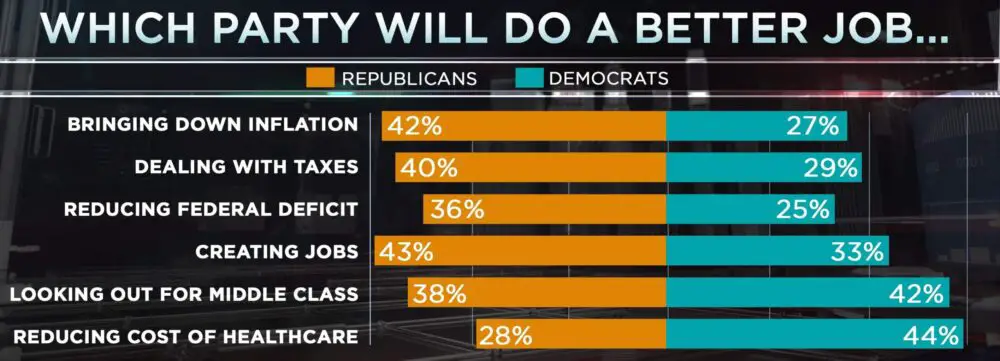While Democrats continue campaigning on issues that voters find unimportant, like high school football records, Republicans keep scoring big numbers on the economy and inflation.
It’s a tone-deaf attitude driving up GOP chances in states like Pennsylvania and Georgia, both contests that were somewhat written off weeks or months ago as possible pickup opportunities. With the Inflation Reduction Act a total bust as Biden wants to spend some $400 billion bailing out student loans, it’s a rough field out there for a Democrat.
According to new poll numbers from CNBC, the GOP remains the favorite to control the House and remains completely dominant when voters are asked which party will better handle the economy:
Americans’ views on the current state of the economy rose 5 points from the prior survey, yet still remain at a low level. Only 16% say the economy is excellent or good, up from 11% in July; 83% call the economy fair or poor, the third straight survey where the percentage has been above 80.
On the outlook, 27% expect the economy to improve in the next year, up from 22% in July, with 45% expecting it to get worse, down from 52% in July. The 45% who believe the economy will worsen is the third most pessimistic result in the 14-year history of the survey, eclipsed only by the surveys in July and a year ago.
Republicans have a 2-point advantage, 48%-46%, on party preference to control Congress. That’s a toss-up with the poll’s +/-3.5% margin for error, but Democrats have typically had substantial leads in this question when they have picked up congressional seats. The gap is the same as the prior survey, which came in at 44%-42%.
Here’s the accompanying chart demonstrating just how far gone Democrats are when it comes to losing trust on economic issues:
Oddly enough, it’s the middle class getting crunched by Biden’s policies yet that question along with the cost of healthcare is the only area Democrats lead. It’s a strange dichotomy to see poll respondents give the GOP a strong edge on all the economic indicators but then feel like Democrats better look out for the middle class. The numbers are basically a tie (38/42) but a strange answer amid the other numbers.
There’s a slew of other depressing economic views in the poll as well, here’s a small sample:
- 43% of Americans say higher interest rates have had a negative effect on their personal financial situation; 47% say they’ve been hurt by the stock market decline; and 77% say inflation has set them back financially.
- Just 32% believe their home price will increase in the next year, the lowest level since the Covid pandemic began; 23% believe their home price will decline in the next year, the highest level since 2011.
- Views on the stock market remain depressed — just a point above the worst levels ever recorded in the survey — with just 28% saying it’s a good time to invest in the stock market.
- 68% think the U.S. will soon be in a recession, including 9% who believe we are already in a recession.
It’s not just one thing that’s hampering Democrats in November, it’s death by a thousand cuts to the average American household. Everything from gas to groceries, interest rates, mortgage rates, and property taxes, it’s all going up and causing a serious strain over the past 18 months. Not every bad economic indicator can be directly attributed to Biden’s policies, but many can be. It’s the culmination of everything at once coupled with a chaotic energy policy creating financial turmoil and ongoing uncertainty.
Democrats did not expect to be playing defense in places like Nevada, Arizona, Pennsylvania, and Georgia to this extent. Recent numbers out of Arizona show Republican Blake Masters down just one point to incumbent Democratic Sen. Mark Kelly. The depth of the red wave hasn’t yet been fully realized but the sour attitude voters have toward Biden’s economy may tilt many competitive races toward the GOP’s favor.
If that happens, maybe a 52-48 GOP Senate majority actually looks like an underestimate.
Donate Now to Support Election Central
- Help defend independent journalism
- Directly support this website and our efforts

